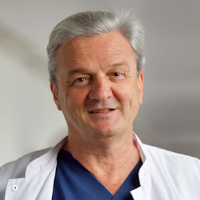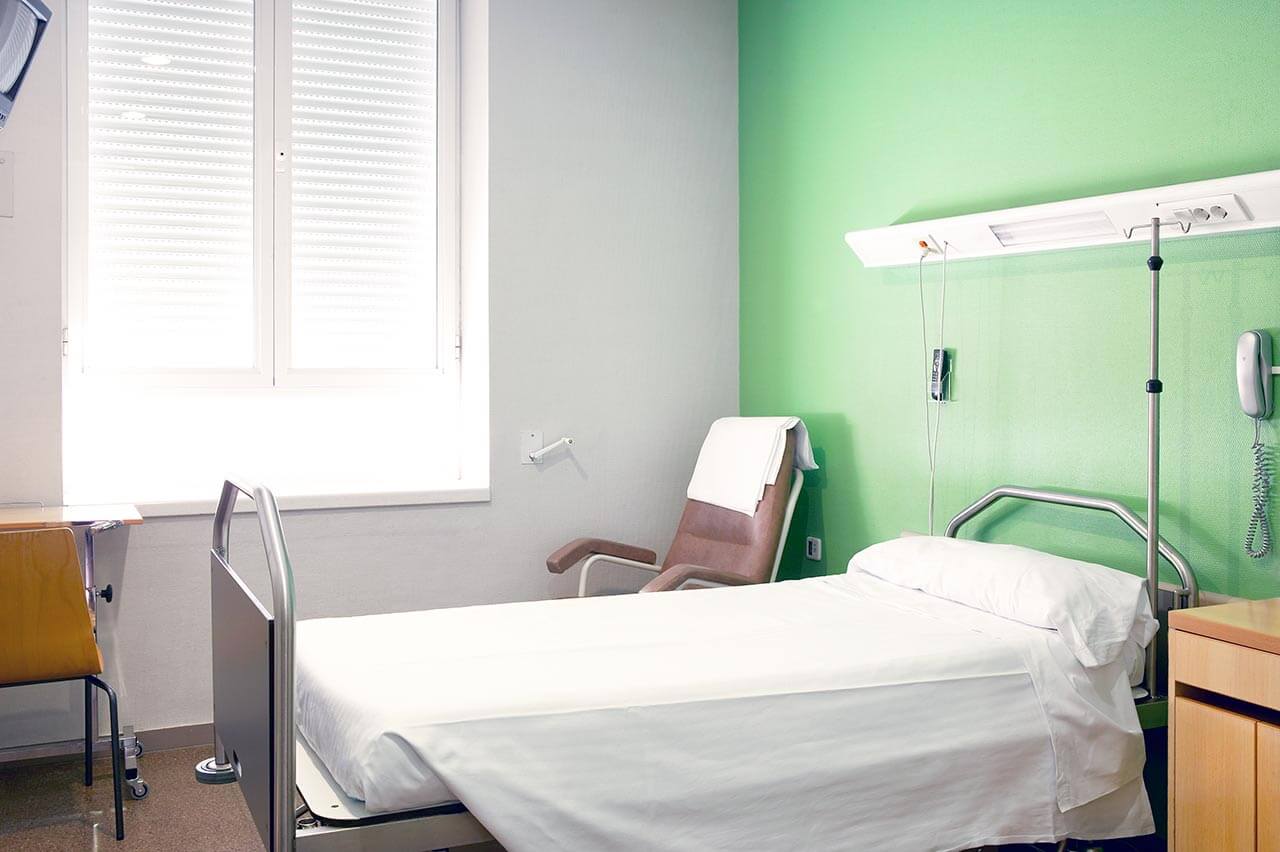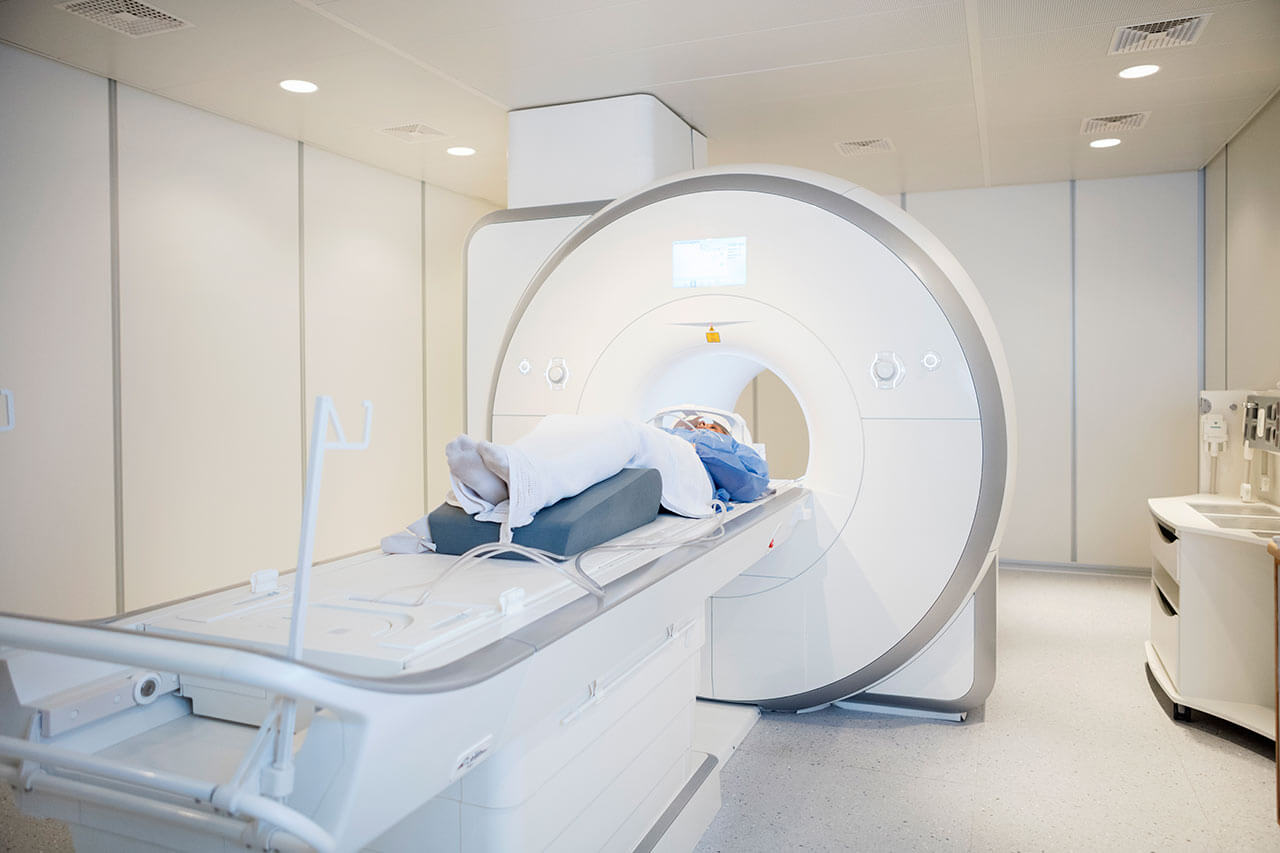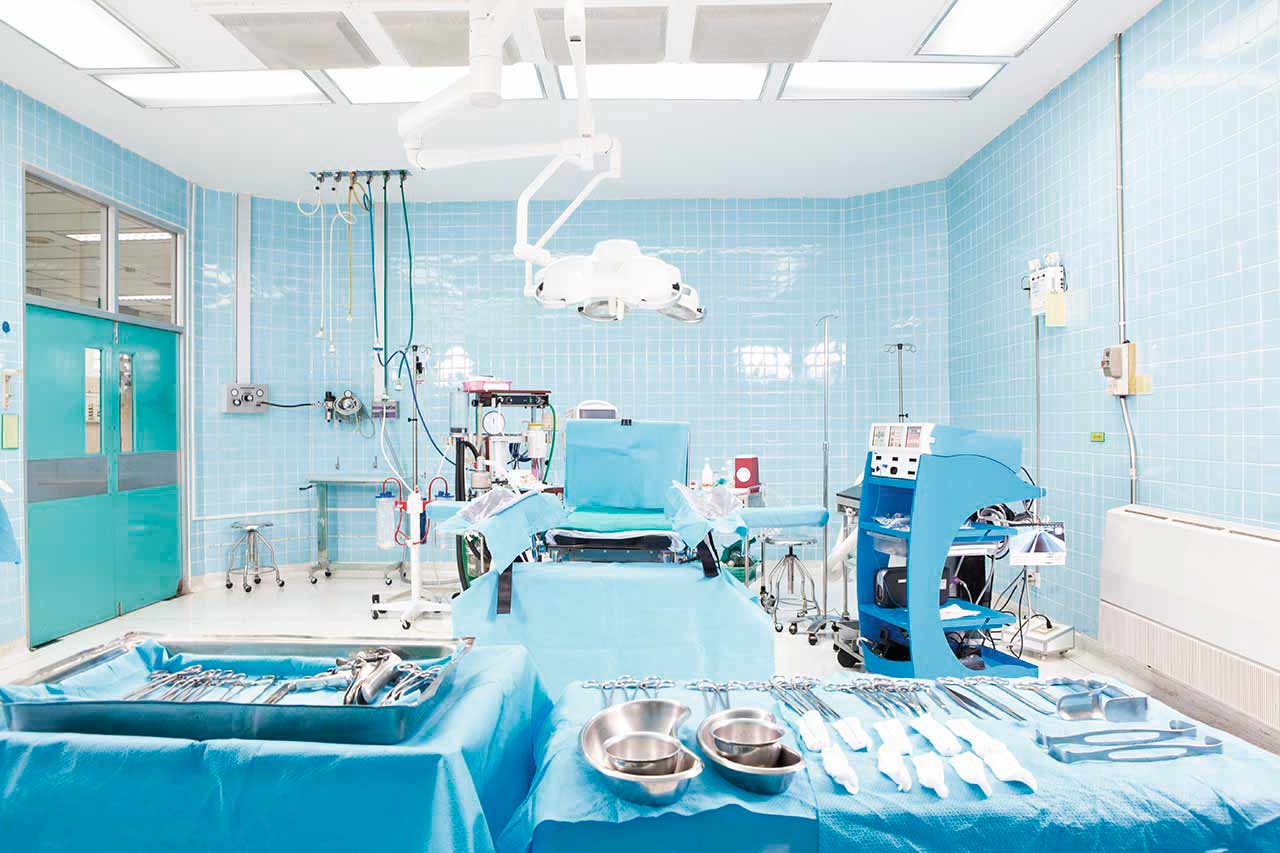
The program includes:
- Initial presentation in the clinic
- clinical history taking
- review of medical records
- physical examination
- laboratory tests:
- complete blood count
- general urine analysis
- biochemical analysis of blood
- tumor markers
- inflammation indicators
- indicators blood coagulation
- pelvic and abdominal ultrasound
- preoperative care
- endoscopic internal urethrotomy (sachse method)
- symptomatic treatment
- control examinations
- cost of essential medicines and materials
- nursing services
- full hospital accommodation
- explanation of future recommendations
Required documents
- Medical records
- Urethrography and urethroscopy (if available)
Service
You may also book:
 BookingHealth Price from:
BookingHealth Price from:
About the department
The Department of Adult and Pediatric Urology, Andrology at the University Hospital of Ludwig Maximilian University of Munich offers the full range of services in the areas of its specialization. Men and boys with diseases of the reproductive system can be diagnosed and treated in the medical facility. Doctors also treat infertility and erectile dysfunction. Medical care is provided to men and women with diseases of the urinary system, namely kidneys, ureters, bladder, and urethra. The department is certified as the Prostate Cancer Center by the German Cancer Society (DKG), which indicates the excellent quality of the services provided in this area. The department's urologists have a perfect command of the innovative treatment methods, including holmium laser enucleation of the prostate (HoLEP), photodynamic therapy, and da Vinci robot-assisted surgery. The department employs comprehensively trained and experienced doctors who apply advanced medical achievements in their practice. Each patient is provided with an individual approach, considering their specific needs and wishes.
The Head Physician of the department is Prof. Dr. med. Christian Georg Stief. The doctor has more than 35 years of successful clinical practice in the treatment of the full range of urologic diseases and infertility in men. The treatment of malignant diseases of the male reproductive system, kidneys, and bladder is his main clinical interest. Prof. Stief keeps pace with innovations, offering his patients the most sparing da Vinci robot-assisted surgery. The specialist is the editor of specialized urology journals and the author of about 500 publications in the medical literature.
The department is one of the best German medical facilities specializing in prostate cancer treatment. This type of cancer is the most common in men. The department's urologists use such tests as a PSA (prostate-specific antigen) test, a digital rectal exam, a transrectal ultrasound scan, and a prostate biopsy to make a diagnosis. If the diagnosis is confirmed, a skeletal scintigraphy and a CT scan may also be required, which allow for determining the stage of the oncological process and detecting metastases. To date, prostate cancer is well treatable due to the use of modern therapeutic methods. The specialists working at the medical facility achieve good results even when dealing with the advanced stages of prostate cancer.
Patients with localized prostate cancer receive curative (that is, completely curable) care, which includes a radical prostatectomy and radiation therapy. Surgeons usually perform a prostatectomy with the help of the da Vinci X surgical system, so the operation is as sparing as possible and allows patients to preserve their erectile function and avoid problems with urination. The department's doctors successfully carry out brachytherapy (internal irradiation), in which the prostate gland is irradiated from the inside by implanting special radioactive seeds. For elderly patients who do not have rapid tumor growth rates, hormone therapy is often sufficient. The specialists can sometimes resort to active surveillance, which does not involve the use of any therapeutic methods. A treatment regimen for metastatic prostate cancer may include surgery, radiation therapy, chemotherapy, and hormone therapy. The optimal treatment regimen is developed for each patient individually.
As for benign diseases, the department's doctors most often deal with benign prostatic hyperplasia. The department is one of the few centers in South Germany offering holmium laser enucleation of the prostate (HoLEP) as a standard treatment for a prostate adenoma. With this method, even a very large prostate gland can be removed through the urethra (namely, through a transurethral approach). Thanks to the introduction of this technology, the department's doctors completely abandoned the usual surgical interventions through the anterior abdominal wall or bladder (open adenoma enucleation). At the same time, there are practically no restrictions associated with the size of the prostate gland.
The operation is the most sparing for a patient. A urinary catheter will be removed 2-3 days after the intervention, and a patient will be discharged from the hospital. On average, the department performs 2-3 holmium laser enucleations per day. To date, patients have never required a blood transfusion. The effectiveness of this method is confirmed by numerous international studies, and therefore it is recommended by the German and international societies of urology.
The department successfully treats malignant kidney and bladder tumors. The main treatment for kidney cancer is surgical resection of the tumor or removal of the affected kidney (usually in the advanced stages), which can be supplemented with chemotherapy, radiation therapy, immunotherapy, and other types of conservative treatment. When performing surgery, the department's doctors use robot-assisted and low-traumatic laparoscopic techniques whenever possible. The basis of the therapeutic process for bladder cancer is also an operation, during which surgeons remove either only the tumor or the tumor with part or all of the affected organ (depending on the stage of the oncological process). In the case of non-muscle-invasive forms of bladder cancer, the department's specialists prefer a transurethral resection of the bladder (sparing intervention with organ preservation). A cystectomy is performed to remove localized muscle-invasive bladder tumors, during which doctors also form a new bladder, for example, from ileum tissue. Chemotherapy and other conservative treatment methods can often be used for bladder cancer treatment.
It is worth noting that the department is one of the few in Europe where the innovative da Vinci Si HD surgical system is available and highly qualified professionals with vast experience in this operation work. The specialists working at the medical facility have over 12 years of successful experience with the device. Particular attention is paid to tumor removal surgery, namely nerve-sparing prostatectomy, kidney tumor removal, cystectomy with bladder prosthetic repair, and other interventions. The use of a robot-assisted surgical system guarantees patients many benefits, including a good aesthetic result of the operation (virtually invisible scars), mild postoperative pain, minimal health risks, and a short hospital stay.
The department also admits young patients with various urologic diseases. Doctors treat enuresis (nocturnal enuresis), recurrent urinary tract infections, vesicoureteral reflux, and other urinary outflow disorders, phimosis, varicocele, undescended testicles, and others. In some cases, the specialists use only drug therapy, for example, to treat urinary tract infections. If a child was diagnosed with phimosis or an undescended testicle, then, in most cases, surgical repair is required. As a rule, urological operations in children are performed on an outpatient basis without a mandatory hospital stay.
The department's therapeutic offer is supplemented by treating andrologic diseases, in particular, erectile dysfunction and infertility. In the case of erectile dysfunction, doctors begin with diagnostics to determine the cause of the pathology. For example, the condition can develop due to neurological problems, depression, circulatory disorders, or hormonal imbalances. In most cases, the pathology can be cured just with the intake of modern drugs, but, if necessary, surgery may also be performed, including arterial revascularization and prosthetic repair. Men with suspected infertility also require accurate diagnostics (a clinical examination, hormonal tests, a spermogram, and ultrasound scans), based on the results of which an andrologist will determine the exact cause for the inability to conceive a child and prescribe the necessary treatment. For example, 10-15% of cases of infertility are caused by varicocele, for which the specialists perform a minimally invasive operation lasting about 30 minutes. If non-obstructive azoospermia is confirmed in a man, TESE (testicular sperm extraction) or MESA (microsurgical epididymal sperm aspiration) may be indicated. The department's doctors have vast experience with these manipulations, so patients can be confident in their effectiveness and safety.
The department’s range of medical services includes:
Adult urology |
|
Pediatric urology
|
|
Andrology
|
|
| Other diseases, diagnostic and treatment methods |
Curriculum vitae
Higher Education and Professional Career
- 1978 Beginning of the medical studies, Faculty of Medicine, Saarland University.
- 1980 Entry into the German Academic Scholarship Foundation (Studienstiftung des deutschen Volkes).
- 1982 Three-month practice in Bophuthatswana, South Africa.
- 1982 - 1983 Studies at the University of Freiburg.
- 1983 1984 One-year practice in Montpellier (France) as a Fellow of the French government and the German Academic Exchange Service (DAAD).
- 1984 Admission to medical practice, military service in the Department of Urology at the Bundeswehr Hospital in Ulm.
- 1985 Thesis defense, magna cum laude, University Hospital Saarland Homburg.
- 1987 Assistant Physician in the Department of Urology, University Hospital Freiburg.
- 1987 - 1988 Research Fellow in the Department of Urology at the University of California, San Francisco as a Fellow of the German Research Foundation (DFG), during one year.
- 1988 Assistant Physician, University Hospital Freiburg.
- 1989 Assistant Physician, Department of Adult and Pediatric Urology at the Hannover Medical School.
- 1990 Board certification in Urology.
- 1991 Habilitation and Venia Legendi in Urology.
- 1995 Managing Senior Physician.
- 1996 Extraordinary Professorship.
- 1999 Additional qualification in Special Surgical Urology.
- 2001 Permission to teach in advanced training courses in Special Surgical Urology.
- 2004 Head of the Department of Adult and Pediatric Urology, Andrology at the University Hospital of Ludwig Maximilian University of Munich.
- 2005 - 2008 Chairman of the Publishing Bureau at the European Association of Urology.
- 2006 - 2012 Junior Editor of European Urology.
- 2007 Editor of the weekly medical website, Stiefs Consultation 'im Münchner Merkur and affiliated daily newspapers.
- 2010 Co-Editor of Der Urologe.
- 2014 and 2015 Chairman, International Consultation on Malignant Urologic Diseases.
- 2018 Member of the Scientific Board, Medical Committee.
- 2020 Member of the German National Academy of Sciences Leopoldina.
Photo of the doctor: (c) LMU Klinikum
About hospital
According to the Focus magazine, the University Hospital of Ludwig Maximilian University of Munich is regularly ranked among the best medical institutions in Germany!
The hospital is the largest multidisciplinary medical facility, as well as a leading research and training center in Germany and Europe. The hospital is proud of its bicentenary history and tirelessly confirms its primacy at the national and international levels. The outstanding quality of medical care is complemented by highly productive research activities, thanks to which many effective diagnostic and therapeutic methods, saving people’s lives, have been presented in medical practice.
The medical facility includes two main buildings, Grosshadern and Innenstadt. The hospital has 29 specialized departments, 53 interdisciplinary centers, 11 institutes, and many sections. More than 500,000 patients are treated here every year, which indicates the hospital's excellent reputation. A large and highly professional medical team, consisting of 1,800 doctors and 3,300 nursing staff, works for the benefit of patients. The hospital has 2,000 beds to accommodate patients.
The hospital's infrastructure deserves special attention: advanced diagnostic equipment that allows doctors to detect the slightest pathological changes in the human body, the latest operating rooms with highly efficient monitoring systems, robot-assisted surgical systems that facilitate sparing operations, and proper postoperative care.
Excellent technical resources and highly professional medical staff are undoubtedly the hospital's pride, but the medical facility also pays attention to the patient's comfort and to a humane attitude toward their life situation. When providing the necessary medical care, doctors and nursing staff always show a friendly attitude, inform patients in detail about the upcoming diagnostic and therapeutic procedures, gladly answer all questions of interest to patients, and provide moral support during the therapeutic process.
The hospital has many prestigious quality certificates, including a DIN EN ISO 9001 certificate, an IQM certificate, an endoCert certificate, certificates from the German Cancer Society (DKG) for treating various types of cancer, the German Cardiac Society (DGK), the German Society for Orthopedics and Trauma Surgery (DGOU), etc. Thus, patients can count on the best possible treatment outcome due to the use of the most effective and, at the same time, sparing therapeutic techniques.
Photo: (с) depositphotos
Accommodation in hospital
Patients rooms
The patients of the University Hospital of Ludwig Maximilian University of Munich live in comfortable, spacious, single and double patient rooms with a modern design. Each room is equipped with an ensuite bathroom with a shower and toilet. The furnishing of a standard patient room includes a comfortable bed, the position of which can be adjusted using the remote control, a locker for storing personal belongings, a TV, and a telephone. Also, if desired, you can connect to the Internet. In addition, patients can opt for enhanced-comfort rooms, with a safe, a fridge, and upholstered furniture.
The hospital has an excellent infrastructure. The medical facility’s area houses a bank, ATMs, a hairdresser, shops with a wide range of food, drinks, newspapers, magazines, and personal hygiene items, play areas for children, and a beautiful garden for walking, etc.
Meals and Menus
The patient and his accompanying person are offered a daily choice of three menus, including a vegetarian one. If you are on a specific diet for any reason, you will be offered an individual menu. Please inform the medical staff about your dietary preferences prior to the treatment.
Further details
Standard rooms include:
Religion
Religious services are available upon request.
Accompanying person
Your accompanying person may stay with you in your room or at a hotel of your choice during the fixed program.
Hotel
You may stay at a hotel of your choice during an outpatient program. Our managers will help you to choose the best option.
The hospital offers a full range of laboratory tests (general, hormonal, tests for infections, antibodies, tumor markers, etc.), genetic tests, various modifications of ultrasound scans, CT scans, MRI and PET/CT, angiography, myelography, biopsies, and other examinations. Treatment with medications, endoscopic and robotic operations, and stereotaxic interventions are carried out here, modern types of radiation therapy are also used. The hospital offers patients all the necessary therapeutic techniques.
- Allogeneic bone marrow transplantation
- Microsurgical transplantation of head and neck tissues
- Microsurgical resection of brain tumors with intraoperative fluorescence
- Minimally invasive treatment of spine pathologies
- Joint replacement with postoperative rehabilitation (fast track program)
Patients with benign and malignant neoplasms of various localizations, pathologies of arteries and veins, herniated discs, osteoporosis, congenital and acquired pathologies of the musculoskeletal system, benign and malignant pathologies of the mammary gland, and other pathologies.
Which specialties of the University Hospital of Ludwig Maximilian University of Munich are the best?
- Interventional and diagnostic neuroradiology
- Vascular surgery
- Cardiac surgery
- Mammalogy
- Gastroenterology and hepatology
Over 1,700 highly qualified doctors work at the hospital.





